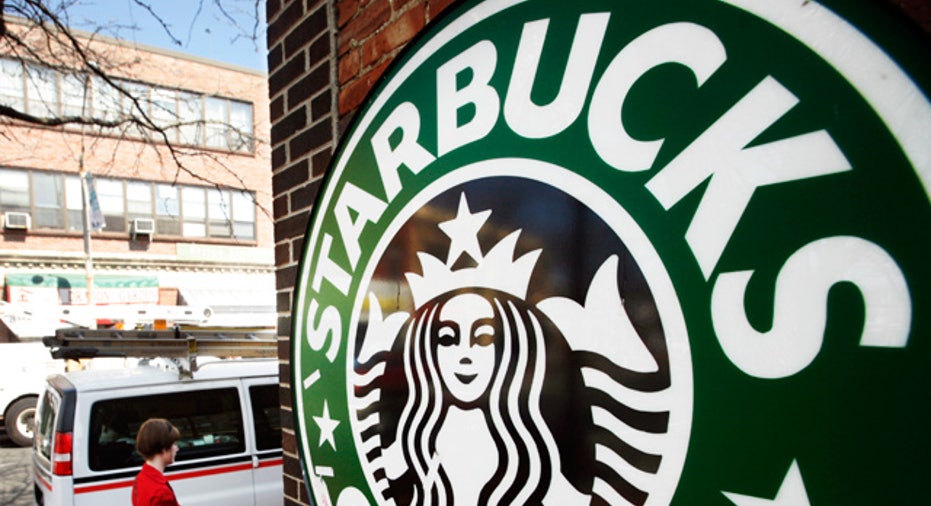Starbucks Raises Prices in U.S. Northeast, Sunbelt

Starbucks Corp raised prices by an average of about 1 percent in the U.S. Northeast and Sunbelt on Tuesday, making coffee-drinkers spend more in New York, Boston, Washington, Atlanta, Dallas, Albuquerque and other cities.
Shares of Starbucks, which boosted drink prices in some other U.S. markets in November, retreated to $45.30, down 1.5 percent, after hitting a new high of $47.04 in early trading.
Starbucks expects high costs for things like coffee, milk and fuel to cut into profits this year. Like other restaurant operators ranging from Chipotle Mexican Grill to McDonald's Corp, it is raising prices to help offset some of that cost pressure.
"They're trying to protect their profits and margins. Everyone else is doing it, so why not they?" said Edward Jones analyst Jack Russo.
Starbucks "can do this and get away with it given their presence in the coffee industry and the positive brand equity that the Starbucks name brings," Russo said.
In New York City, the price for 12-ounce "tall" brewed coffees and latte drinks went up 10 cents. Prices on about half a dozen other beverages also were set to increase, Starbucks spokesman Jim Olson told Reuters.
The world's biggest coffee chain raised prices on some drinks in California and South Florida in November, so those markets were not affected by Tuesday's hikes. The Pacific Northwest, the Midwest and Hawaii also saw prices go higher in that November round.
Starbucks caters to a somewhat higher-income customer, and recent price increases prompted no apparent pushback.
Other brands have not have the same success.
On Dec 30, Verizon Wireless reversed its decision to charge a fee for telephone and online bill payments after consumers and U.S. communications regulators balked.
Bank of America recently decided against a new $5 monthly fee for debit card users amid protests.
On the restaurant front, P.F. Chang's China Bistro said menu price increases at its P.F. Chang's and Pei Wei restaurants scared away budget-conscious diners last year.
Starbucks' Olson said the price for a 16-ounce "grande" brewed coffee, the company's most popular beverage, remained the same across the United States and has not changed since January 2011. The price for grande lattes was unchanged in most markets, he added.
The Seattle-based chain said its pricing decisions are based on multiple factors, not just the price of coffee, which has eased lately.
Those considerations include "competitive dynamics" in individual markets as well as costs related to distribution, store operations and commodities, including fuel and ingredients for food and beverages, Olson said.
Price checks in New York, Los Angeles and Chicago on Tuesday showed that Starbucks 12-ounce brewed coffee and lattes cost more than those sold by McDonald's, which used Starbucks' reputation for selling pricey lattes as the focus of early advertisements for its own espresso-based drinks.
Those same checks also revealed that some smaller "premium" coffee chains, including Intelligentsia, Lavazza and Coffee Bean & Tea Leaf, were selling their own versions of those drinks at prices higher than Starbucks'.
Intelligentsia had the highest prices of the group, charging $4 for a 12-ounce latte and $3.50 for the same sized brewed coffee in Chicago. At a nearby Starbucks, a 12-ounce latte sold for $2.85 and the brewed coffee was $1.65.
That suggests that Starbucks' prices are not at the top of the premium coffee category - and may have more room to rise.
In the latest reported quarter, customers visited Starbucks cafes more often and spent more money when they did. Same-restaurant sales at U.S. cafes, which account for about four-fifths of its revenue, were up 10 percent.
The company previously said it expects costs for commodities such as coffee and milk to reduce fiscal 2012 earnings by about 21 cents per share. Despite that, it has forecast a profit of $1.75 to $1.82 per share this year, which would represent profit growth of as much as 20 percent over fiscal 2011. (Reporting by Lisa Baertlein in Los Angeles, additional reporting by Jessica Wohl in Chicago and Phil Wahba in New York; Editing by Andrew Hay, John Wallace, Gary Hill)



















